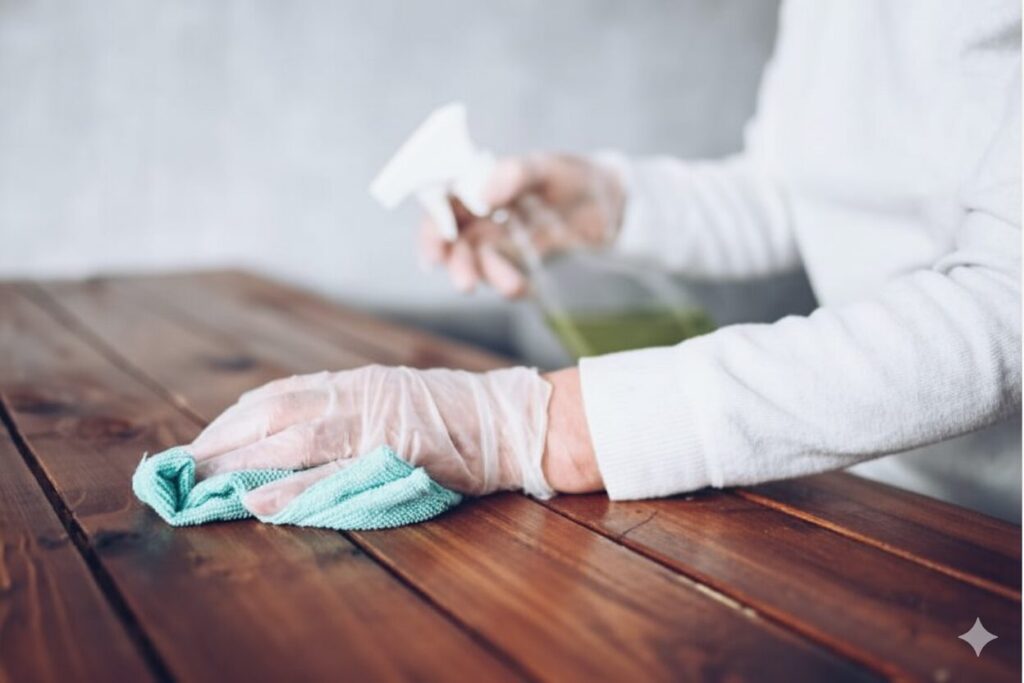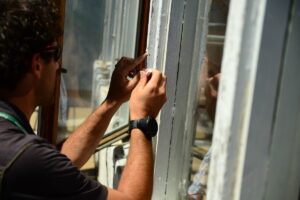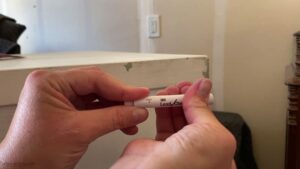Do you have an idea how harmful lead can be for your health? Lead dust is one of the most hazardous contaminants. In NYC, older buildings contain a handsome amount of lead. Therefore, lead dust remediation in NYC is very important to ensure your health and safety. The Health and Hygiene Department enforces strict guidelines to prevent lead poisoning. Lead ust clearance is a vital step to avoid lead poisoning.
What is Lead Dust Clearance Testing?
Lead dust clearance testing is a procedure used to measure the levels of lead dust remaining in a building after a lead remediation project. The purpose is to ensure that the building is safe for occupation after work has been completed. During the process, a certified inspector uses specialized equipment to collect dust samples from surfaces.
Why is Lead Dust Remediation Important in NYC?
NYC is known for old buildings where lead-based paint is still common. The problem with lead-based paint is that it deteriorates over time. This creates lead dust that gets settled on surfaces. When you inhale this dust, it causes serious health problems, particularly in young children. Thinking about the lead dust exposure results? It causes developmental delays, lower IQ, and even lifelong health complications.
Lead dust remediation in NYC is important because it reduces these risks. Lead dust removal from homes, apartments, and buildings helps property owners protect the health of residents and avoid penalties from HPD for non-compliance with safety regulations.
Worried about lead exposure risk? Read this: Lead Exposure Risks in Homes: Why Abatement Is Essential
When is Lead Dust Clearance Testing Required by HPD?
HPD requires lead dust clearance testing after any lead remediation work is completed in homes, apartments, or buildings built before 1978. The law is clear: if lead-based paint has been disturbed during renovation, repair, or abatement work, the property must pass lead dust clearance testing before being reoccupied. Here are a few instances when clearance testing is mandatory:
- After Lead Paint Abatement: If lead-based paint was removed or encapsulated, clearance testing ensures that no hazardous levels of lead dust remain.
- Post-Renovation or Repair Work: In cases where renovation work disturbs painted surfaces, HPD mandates clearance testing to confirm that no lead dust is present in excess of the permissible levels.
- When Moving Residents Back In: Before tenants or homeowners can move back into a building that has undergone lead dust remediation, HPD requires testing to verify the safety of the living space.
- After Routine Lead Dust Removal: Even after regular cleaning or minor fixes to lead-based paint, clearance testing is needed to confirm that dust levels are within acceptable limits.
How is Lead Dust Clearance Testing Performed?
The process begins with a certified lead inspector or risk assessor who takes samples from various surfaces inside the building. These areas are most often places where lead dust accumulates, like floors, window sills, and door frames. The inspector uses a swab or wipes to collect dust, and these samples are sent to a laboratory for analysis.
The laboratory tests the samples to determine if the lead concentration is above the safety threshold. According to HPD guidelines, the acceptable level of lead dust in a residential area is set at 40 micrograms per square foot (μg/ft²) on floors, 250 μg/ft² on window sills, and 400 μg/ft² on window wells.
If the lead dust level exceeds these limits, the building will fail clearance testing. In this case, additional remediation is required before another round of testing is performed.
Lead Dust Clearance Testing and NYC Health Laws
Lead dust clearance testing isn’t just a precaution; it’s a legal requirement in New York City, enforced by the HPD and other regulatory bodies. Under the NYC Local Law 1, all property owners are responsible for maintaining a lead-free environment, particularly in pre-1978 buildings. This law requires that if lead-based paint hazards are found, lead dust remediation must be conducted, followed by clearance testing.
HPD enforces these laws strictly, and failure to comply with lead dust clearance testing can result in severe penalties, including fines and potential eviction of tenants. Additionally, failure to pass the clearance test can prevent a property owner from legally renting or selling the unit until the necessary remediation has been completed.
Why is Lead Dust Clearance Testing Vital?
Lead dust is dangerous, even in small amounts. That’s why clearance testing is so important. Without proper testing, it’s impossible to know if all the lead dust has been removed. A failed clearance test indicates that more work is needed, which is essential for ensuring the safety of all building occupants.
Here are some of the reasons why clearance testing is mandatory to avoid:
- Health risks
- Legal compliance
- Preventing liabilities
What Happens if Lead Dust Clearance Testing Fails?
If the lead dust clearance testing fails, additional work is required. A remediation contractor will need to return to the property and perform further cleaning or removal. This may involve vacuuming with HEPA-filtered vacuums, wet cleaning, or even additional abatement work. Once the remediation is complete, the property will need to undergo another round of testing to ensure that lead dust levels are within safe limits.
Property owners are responsible for making sure that clearance testing is passed before moving forward with renting or selling the property. If the property still does not meet safety standards after remediation, the process must be repeated until it passes.
Do You Need Help With Lead Dust Remediation in NYC?
Do you think your building is prone to lead? Get it tested immediately. We at Manhattan Lead offer reliable lead dust remediation services in NYC. Our inspectors will visit your location, collect samples, and send them to the laboratory for testing. They will then bring the report and provide mandatory services.
Call us anytime, we are at your service.




